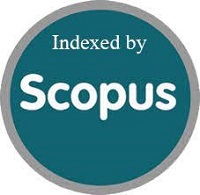Construct validity of Subjective Well-being by Confirmatory Factor Analysis (CFA) in Indonesian caregivers of Intellectually disabled children
DOI:
https://doi.org/10.15408/jp3i.v9i2.14489Keywords:
construct validity test, satisfaction with life scale (SWLS), scale of positive and negative experience (SPANE), confirmatory factor analysis (CFA)Abstract
Bringing up a child with disabilities has particular challenges and demands as these children's disabilities may cause certain impacts on their caregivers' well-being. In most of the studies, caregivers exhibited high scores of negative emotions that led to low subjective well-being. The effort to improve caregivers' well-being has been being carried out and one of the ways through subjective well-being research. Diener et al. (2009) define Subjective Well-Being (SWB) as the person’s evaluation of their life events in terms of cognitive and affective aspects. The higher rating score of these aspects, the higher level of SWB of the person. The aspects of SWB could be well measured if the instrument has good psychometric properties. The validity of the instruments is crucial to produce good quality research. In the present study, we examined the construct validity of the SWB using Satisfaction with Life Scale (SWLS) and Scale of Positive and Negative Experience (SPANE) scales. The data was collected from 209 parents who had children with intellectual disability in Tangerang and Jakarta. The construct was validated by exploratory factor analysis (EFA) and Confirmatory Factor Analysis (CFA) in the software R version 3.6.2. The EFA results showed that the construct consisted of four factors: one for the cognitive aspect, one for positive affect, and two for negative affects. The CFA results further demonstrated that this model fitted the empirical data.References
Albano, A. D. (2018). Introduction to educational and psychological measurement using R.
Dheri, G., Pal, S., Singh, V., Marwaha, S., & Chodhary, O. (2019). Hands-on Training on “Statistical Tools and Database Management In Agriculture”. ICAR NAHEP-CAAST-SNRM DEPARTMENT OF SOIL SCIENCE (p. 109). Punjab Agricultural University .
Desmet, P. M. A., & Pohlmeyer, A. E. (2013). positive design: an introduction to design for subjective well-being. International Journal of Design, 7(3), 5-19
Diener, E., Lucas, R. E., & Oishi, S. (2005). Subjective Well-Being: The Science of Happiness and Life Satisfaction. In C. R. Snyder, & S. J. Lopez (Eds.), Handbook of Positive Psychology (2nd ed., pp. 63-73). New York: Oxford University Press.
Diener, E., Inglehart, R., & Tay, L. (2013). Theory and validity of life satisfaction scales. Social Indicators Research, 112(3), 497-527. doi: 10.1007/s11205 012-0076-y
Diener, E., Wirtz, D., Tov, W., Kim-Prieto, C., Choi, D. W., Oishi, S., & Biswas Diener, R. (2010). New well-being measures: short scales to assess flourishing and positive and negative feelings. Social Indicators Research, 97(2), 143-156.doi: 10.1007/s11205-009-9493-y
Drakulić, A. M. (2012). A phenomenological perspective on subjective well-being: From myth to science. Psychiatria Danubina, 24(1.), 31-37
Gough, I. (2003) ‘Lists and Thresholds: Comparing the Doyal–Gough Theory of Human Need with Nussbaum’s Capabilities Approach’, Wed Working Paper 01, Wellbeing in Developing Countries ESRC Research Group, University of Bath
Hooper, D., Coughlan, J., Mullen, M. R. (2008). Structural equation modeling: Guidelines for determining model fit. Electronic Journal of Business Research Methods, 6(1), 53–60.
Kabacoff, R. I. (2003). Determining the dimensionality of data: A SAS ® macro for parallel analysis, Proceedings of the 28th Annual Meeting of SAS Users Group International, Seattle, WA.
Pavot, W., & Diener, E. (1993). Review of the satisfaction with life scale Psychological assessment, 5(2), 164-172.doi: 10.1007/s11205-012-0076-y
Watson, D., Pichler, F., & Wallace, C. (2010). Subjective well-being in Europe. Luxembourg: Office for Official Publications of the European Communities.
Yin, R., & Etilé, F. (2019), Measuring identity orientations for understanding preferences: A French validation of the Aspects-of-Identity Questionnaire, Retrieved from https://halshs.archives-ouvertes.fr/halshs02057130/document



